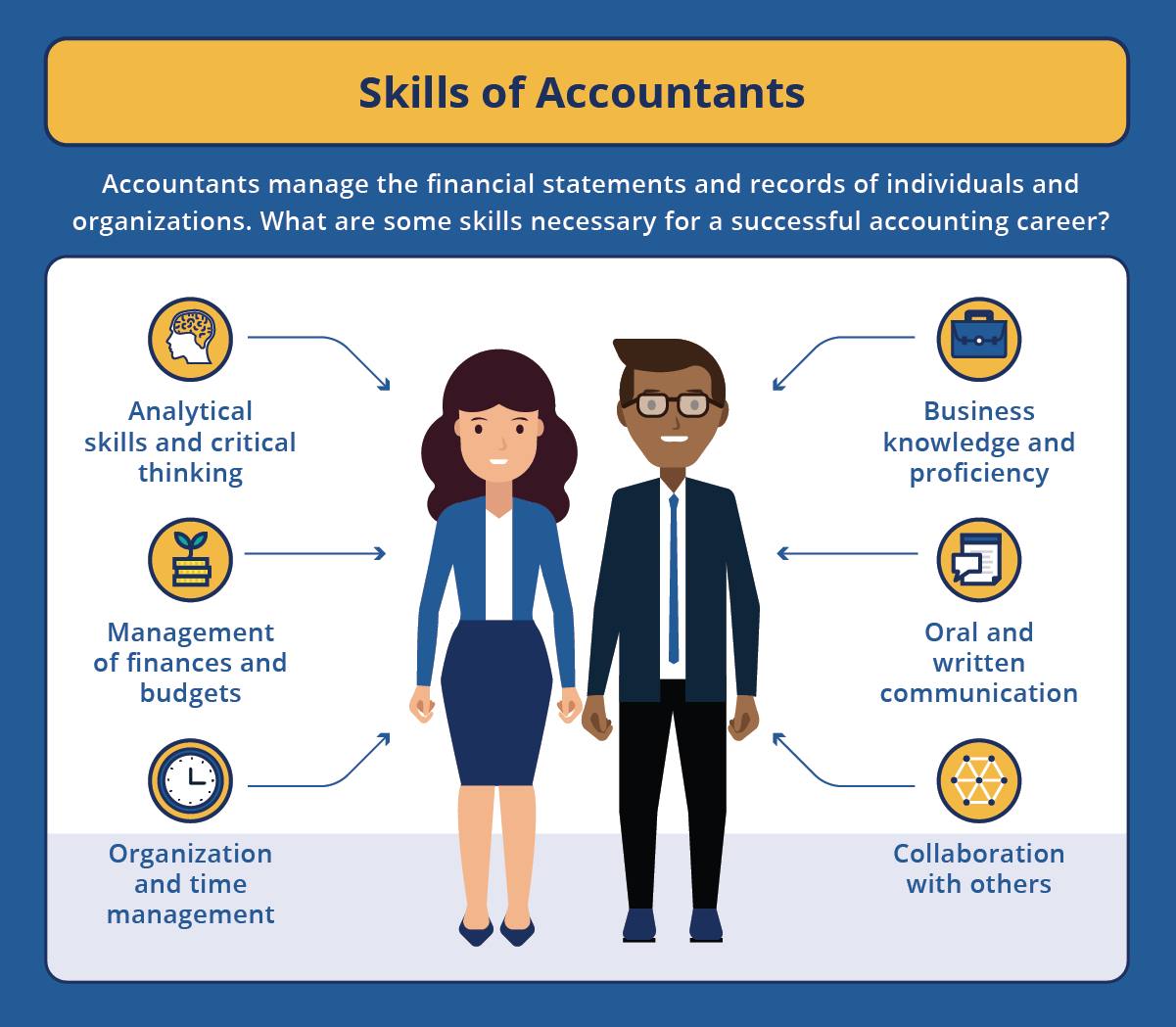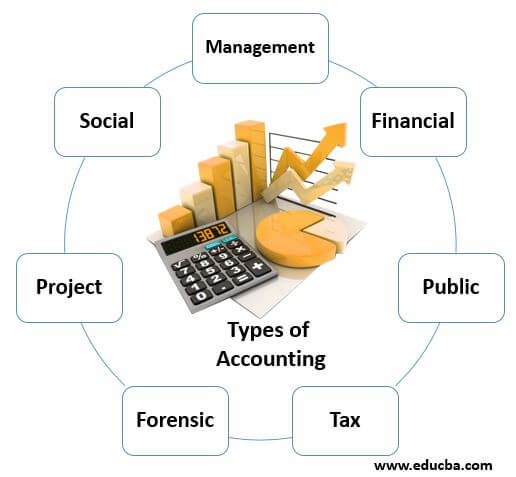Last Updated on December 28, 2022
There are many types of accounting courses available today. A person who wants to become an accountant will have to take at least one college course dealing with financial recordkeeping and accounting.

In the Accounting section of infolearners.com, there are 25 different types of Accounting Courses that you can take. Each type has between 1 to 3 accounting courses or programs. These programs range from 40 hours to over 600 hours and cost anywhere between $79 per month for some of the best accounting courses out there, to $4,000 for other accounting courses.
There are 6 types of accounting courses found in the Accounting Minor. Namely, Financial Accounting Fundamentals, Accounting Principles, Corporate Accounting Economics, Governmental and Nonprofit Accounting Concepts, Managerial Accounting Principles focused on managerial accounting for the small business and Taxation Principles for those individuals interested in becoming certified public accountants.
Did you know there are over a dozen accounting certification options out there? Courses vary in length, focus, and the type of certificate awarded. Even with so many options available, you can still be confused as to which accounting courses to pursue.

9 Types of Accounting and 5 Important Accountant Careers
Schools offer a variety of accounting courses. The most common are introductory and advanced, which can be in either a full semester or just a few weeks as an evening course. There are also specialization courses and certificate programs available.
A plethora of accounting options are available to those who want to pursue a career in the accounting field. There are various types of accounting courses, each with different qualification and learning objectives, teaching methods and requirements.
Anastasia Hinojosa is an experienced financial accountant with degrees from Texas A&M-Corpus Christi and Columbia University. She has worked in the healthcare field for over ten years.

Accounting is an indispensable component of any organization. If you’re considering a career in accounting, it’s necessary to know the different types of accounting you can pursue according to the industry. In this article, we explore the different types of accounting fields available and what career options exist for professionals interested in accounting.

Types of accounting
Accountants can specialize in different types of accounting depending on their career interests and goals. Here are the nine most common types of accounting:
- Financial accounting
- Managerial accounting
- Cost accounting
- Auditing
- Tax accounting
- Accounting information systems
- Forensic accounting
- Public accounting
- Governmental accounting
1. Financial accounting
Financial accounting is primarily concerned with the process of compiling information for financial reports for external reporting. Financial accountants work with their colleagues and managers to strategize how a company can be more profitable. Also, they track all financial activity recorded in a ledger in addition to ensuring that internal procedures are being followed and that all financial activity appears on relevant financial statements. Financial accountants will generally work with revenues and disbursements, which include overseeing or participating in general ledger accounting, accounts payable, accounts receivable, payroll, grant management and fixed assets. A financial accountant will be concerned with accurately recording and reporting financial transactions that have already occurred.

Financial accountants are concerned with compliance and must abide by Generally Accepted Accounting Principles (GAAP) set for U.S. businesses and International Financial Reporting Standards if a company operates overseas. Overall, financial accountants need to have strong attention to detail to convey the current financial state to outside sources.
2. Managerial accounting
This type of accounting documents, monitors and assists in the financial planning of an organization. Their documentation is typically meant for internal stakeholders rather than the public. A managerial accountant must be careful in communicating confidential information and to whom. They work with their managers to analyze and create a budget to meet the needs of the short- and long-term goals of the organization. Managerial accountants are concerned with analyzing past performance in order to make predictions about future performance.
Related: 16 Accounting Jobs That Pay Well
3. Cost accounting
Cost accounting can be seen as a subcategory of managerial accounting; however the activities of cost accountants will affect both financial and managerial accountants. Cost accountants are responsible for documenting, presenting and reviewing manufacturing costs. They oversee all variable and fixed costs to see if output aligns with the cost to produce a product. They also work with managers to decide on future decisions based on the financial forecast and the progress of production.
How unit costs are calculated can vary between industries and even similar businesses. Cost accountants are responsible for implementing, overseeing and providing feedback on how these costs are being tracked. A primary concern is how to allocate overhead. Direct materials and direct labor are easily tracked, but indirect costs—such as the cost of the machinery, building, utilities, shared staff,etc— can be allocated in different ways.

Cost accountants can also be used to find out the true cost of an employee. In the same way that indirect costs are allocated to products or services to establish a unit cost, department costs and overhead can be allocated to employees to determine how much it costs to employ them versus how much money they bring in. This can be used for employees that have revenue associated with their roles like sales staff or healthcare providers.
4. Auditing
External auditing is the action of a company providing financial documents to a third party for financial feedback. In this instance, a third party is a reliable source in describing if a company’s financial statement is a representation of GAAP. External auditing is conducted by a Certified Public Accountant (CPA).
Internal auditing determines the effectiveness of internal accounting processes. An internal auditor can review employee departmental responsibilities, management policies and approval procedures on related projects. In turn, they provide useful feedback that can help a company to become more profitable and efficient. Qualifications for internal auditors will vary as this is an internal role. An accountant can become a Certified Internal Auditor (CIA), and some public companies and governmental agencies may require their internal auditors to hold this certification.
Related: What Is a CPA?
5. Tax accounting
Tax accountants help businesses stay in compliance with the Internal Revenue Code when they file their tax documents each year. They also assist companies in planning for future tax returns, such as avoiding certain tax burdens and understanding the implications of specific tax decisions. Usually, larger organizations will hire a tax accountant to navigate the complexities of financial records.
Related: 6 Essential Accounting Skills
6. Accounting information systems
Accounting information systems, or AIS, is the system by which a company collects, stores and processes its financial and accounting data. Many AIS are now built to integrate with other departments such as connecting the hiring process in Human Resources to the payroll function of a newly hired employee. This flow-through process helps minimize the manual entry of information.
AIS professionals manage the improvement of successful accounting procedures. Employees working in this field decide on the best times to install updated technology and monitor the progress of existing systems to determine if there is an increase in productivity over a given timeframe. They can make decisions in conjunction with the IT department to instill continuity with technological processes. They also frequently assist with technical support in maintaining AIS, such as creating new accounts in the system or troubleshooting errors in the software.
7. Forensic accounting
Forensic accounting is used to investigate the financial records of individuals or businesses. It can require accountants to recreate financial information when some information is missing or not available to review. The goal of forensic accounting is to gather all available documentation and accurately and comprehensively account for all transactions in financial statements. These professionals often work on legal cases involving fraud, claims and disputes.
8. Public accounting
Public accounting refers to businesses that provide accounting advice to clients based on their needs. They can work in auditing, assist with tax returns, consult on procedures tailored to the installation of technology or computer programs and provide legal advice.
9. Governmental accounting
Governmental accountants manage the financial planning and allocation of resources to departments within a local, state or federal government. This type of accounting has standards that must comply with the Governmental Accounting Standards Board (GASB), which is responsible for developing consistent accounting procedures for local and state governments. Federal employees will comply with the Federal Accounting Standards Advisory Board (FASAB). Governmental accountants will also monitor a government’s budget and allocate funds appropriately.
If you are interested in pursuing a career in accounting there are several courses you could take. Accounting encompasses the study of financial records or accounts. Courses offered include:
What accounting types have in common
Although these different types of accounting focus on different aspects of business or even different types of businesses, all of these fields:
- Follow certain standards
- Adhere to facts
- Emphasize ethical processes
It is considered a primary feature of accountancy to serve the public interest by accurately reporting an entity’s financial situation. Regardless of your job title, the standards that inform your reporting or who you work for, it is important for all accountants to be accurate in their work.
Related accounting careers
Here is a list of careers that accountants can pursue:
1. Staff accountant
National average salary: $54,662 per year
Primary duties: A staff accountant works under a Controller or Certified Public Accountant (CPA) to preserve and maintain financial records and budgets for an organization. They often enter journal entries or data into the accounting information system or otherwise monitor the activity in the system for accuracy.
2. Payroll accountant
National average salary: $57,526 per year
Primary duties: A payroll accountant is responsible for carrying out compliance duties for the organization. They report all employee financial activities from the business to the local, state and federal government in addition to having the correct amount of taxes taken out of each employee’s paycheck.
3. Tax accountant
National average salary: $63,499 per year
Primary duties: A tax accountant provides tax preparation advice to companies to file their taxes correctly and to potentially save money through the timing of their financial transactions. They make certain that a company is compliant with filing their federal, state and local taxes.
4. Auditor
National average salary: $57,661 per year
Primary duties: An auditor reviews financial documents to ensure their accuracy. An internal auditor may perform random or scheduled audits to ensure that internal policy is being followed and to make recommendations regarding policy. An external auditor will be a CPA, who will generally do on-site, scheduled audits following an audit plan.
5. Financial accountant
National average salary: $63,787 per year
Primary duties: A financial accountant ensures that financial transactions are accurately recorded and reported. They frequently work with the general ledger either entering journal entries or otherwise overseeing these entries. They may also ensure confidential tax information is properly documented. They also publicize financial information for stakeholders and monitor internal transactions accordingly.
